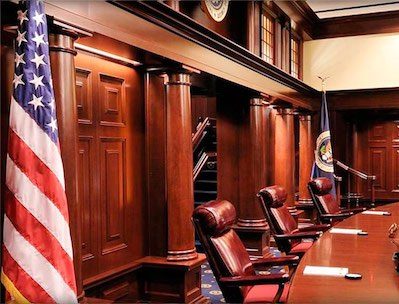 Altaire Pharm., Inc. v. Paragon Bioteck, Inc., No. 2017-1487, 2018 (Fed. Cir. May 2, 2018) (Before O’Malley, Schall, and Wallach, J.) (Opinion for the court, Wallach, J.) (Dissenting opinion, Schall, J.)
Altaire Pharm., Inc. v. Paragon Bioteck, Inc., No. 2017-1487, 2018 (Fed. Cir. May 2, 2018) (Before O’Malley, Schall, and Wallach, J.) (Opinion for the court, Wallach, J.) (Dissenting opinion, Schall, J.)
In 2011, Pharmaceuticals, Inc. (“Altaire”) and Paragon Bioteck, Inc.’s (“Paragon”) entered into an agreement to pursue U.S. Food and Drug Administration (“FDA”) approval for Altaire’s products. Under the Agreement, Paragon was to be responsible for preparing and submitting the new drug applications (“NDA”s) while Altaire was to provide and bear the costs for the associated chemistry, manufacturing, and controls. After Paragon submitted an NDA and the FDA recommended additional testing, Altaire conducted the testing and provided a summary of the test results to Paragon, who submitted this to the FDA. The NDA was approved in March 2013. In November 2013, Paragon filed a drug patent application that issued as the ‘623 patent.
Altaire filed two complaints against Paragon: (1) alleging a breach of the non-disclosure clause of the Agreement, and (2) seeking declaratory judgment that the ‘623 patent was invalid. Paragon, in turn, alleged a material breach of the same clause and sought the termination of the Agreement. Altaire also sought post-grant review of the ‘623 patent, arguing that the patent was obvious over two production lots of its products. After the PTAB issued a final written decision determining that Altaire failed to prove that the asserted claims were obvious, Altaire appealed. The Federal Circuit reversed-in-part, vacated-in-part, and remanded for further proceedings.
As a preliminary issue, the Court held that Altaire had Article III standing to challenge the PTAB’s final written decision, as it demonstrated an injury in fact. Altaire produced sufficient evidence – in the form of a Declaration by its General Counsel Michael Sawaya – that the threat of infringement litigation is real and the injury imminent. Paragon is actively seeking a declaratory judgment that it has the right to terminate the agreement. Even if Paragon does not succeed, the agreement expires in 2021, when Altaire intends to file an ANDA and resume marketing its proprietary formulation of the competing, and infringing, products. Paragon refused to stipulate that it would not sue Altaire for infringement of the ’623 patent. Accordingly, although in the future, the infringement lawsuit is inevitable and the injury thus imminent.
Furthermore, the injury is concrete and particularized. The agreement specifically prevents Altaire from manufacturing its competing products. Invalidating the ’623 patent is necessary for Altaire to file and receive an ANDA for its products. Finally, the likelihood that Altaire would be estopped from arguing obviousness of the ’623 patent in district court under 35 U.S.C. § 325(e)(2), while not itself sufficient to grant standing, further supports a finding of an injury in fact.
The Court next held that the PTAB violated the Administrative Procedure Act by refusing to consider Mr. Al Sawaya’s Testimony and associated testing data. Although the PTAB has broad discretion to regulate the presentation of evidence, that discretion is not without limits. The PTAB abused its discretion by holding that Altaire failed to timely qualify Mr. Al Sawaya as an expert and not considering his testimony. An affidavit corroborating technical tests or data does not need to be submitted by an expert. Furthermore, Altaire properly submitted a response to Paragon’s arguments challenging Mr. Sawaya’s qualifications. Because the PTAB’s decision to give no weight to the declaration influenced in part its rejection of the associated test data, on remand, it must consider the declaration when evaluating the reliability of the data.
Second, the PTAB abused its discretion by refusing to consider Altaire’s test data, submitted in response to Paragons’ objections. Given Paragon’s past reliance on the data before the FDA, Altaire had had no reason to suspect that Paragon would later challenge this. It submitted additional information at the first opportunity at which it reasonably could have been expected to. On remand, the PTAB is to consider all relevant testing information.
In his dissent, Circuit Judge Schall disagreed with the Court’s finding that Altaire demonstrated imminent harm necessary for standing, in part because the agreement was not set to expire until 2021, and therefore he would dismiss for lack of jurisdiction.
Take Away
Petitioner has standing to appeal a PTAB decision, where petitioner intended to file an ANDA for the patented product as soon as possible. Although in the future, the threat of an inevitable infringement lawsuit constitutes a real and imminent injury sufficient to establish standing.
[Troutman-Ad]
[Troutman-About]

![[IPWatchdog Logo]](https://ipwatchdog.com/wp-content/themes/IPWatchdog%20-%202023/assets/images/temp/logo-small@2x.png)


![[Advertisement]](https://ipwatchdog.com/wp-content/uploads/2024/04/UnitedLex-May-2-2024-sidebar-700x500-1.jpg)
![[Advertisement]](https://ipwatchdog.com/wp-content/uploads/2024/04/Artificial-Intelligence-2024-REPLAY-sidebar-700x500-corrected.jpg)
![[Advertisement]](https://ipwatchdog.com/wp-content/uploads/2024/04/Patent-Litigation-Masters-2024-sidebar-700x500-1.jpg)

![[Advertisement]](https://ipwatchdog.com/wp-content/uploads/2021/12/WEBINAR-336-x-280-px.png)
![[Advertisement]](https://ipwatchdog.com/wp-content/uploads/2021/12/2021-Patent-Practice-on-Demand-recorded-Feb-2021-336-x-280.jpg)
![[Advertisement]](https://ipwatchdog.com/wp-content/uploads/2021/12/Ad-4-The-Invent-Patent-System™.png)






Join the Discussion
One comment so far.
patenguy1976
May 20, 2018 03:23 pmGood summary. Here’s a link to an upcoming webinar on standing. http://www.fedcirbar.org/Programs-Sponsorship/Calendar/ArticleID/964/Last-Party-Standing-Who-Has-Standing-to-Appeal-Administrative-Decisions-to-the-Federal-Circuit-Webcast